D# Minor
D sharp Minor scale for guitar presented by diagram.
The D# Minor is a seven-note scale, also called Natural D# Minor. Colored circles mark the tones in the diagram, with darker color highlighting the root notes. The root notes are always D# tones. In the two-octave pattern, the first root note is on the 6th string, 11th fret.
D# Minor 2 octaves
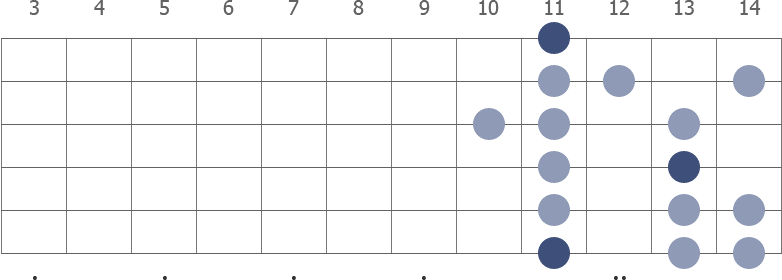
D# Minor full fretboard

D# Minor with note names
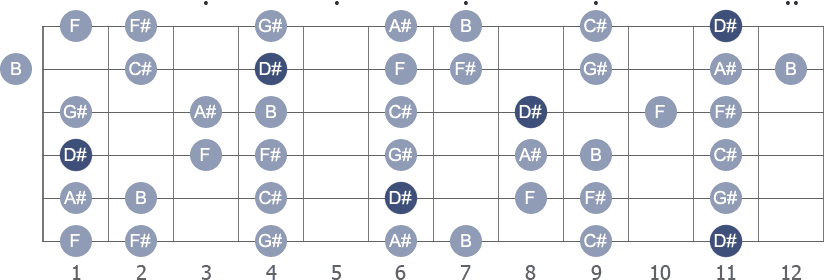
Shape 1 (10th position) with fingerings
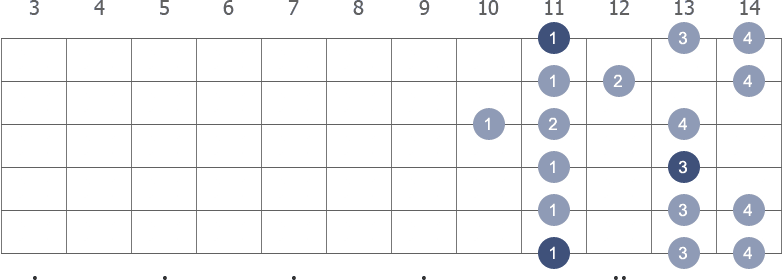
Shape 2 (1st position) with fingerings
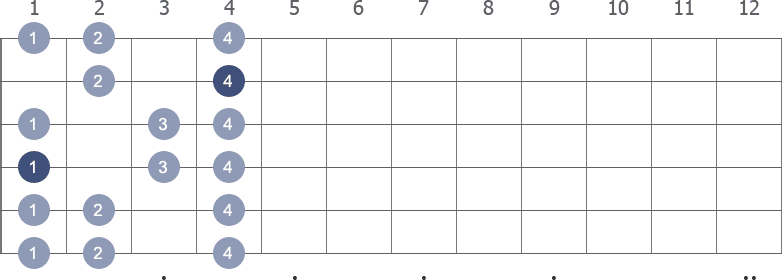
Shape 3 (3rd position) with fingerings
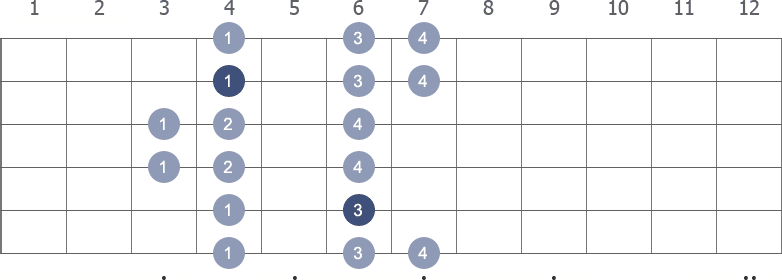
Shape 4 (6th position) with fingerings
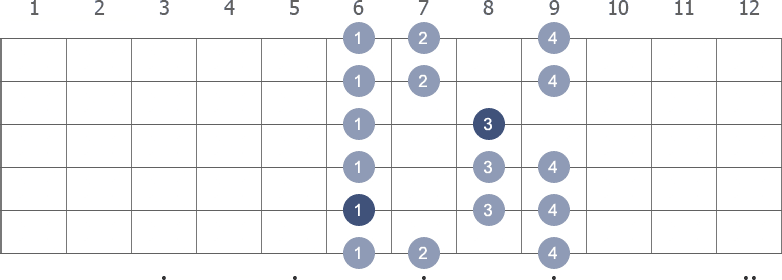
Shape 5 (8th position) with fingerings
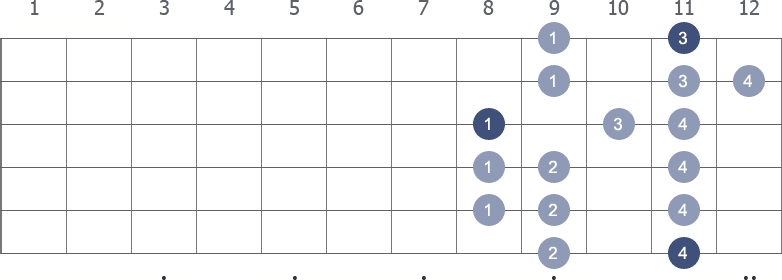
The scale displayed with its numeric formula, notes, intervals and scale degrees.
| Formula | Notes | Intervals | Degrees |
|---|---|---|---|
| 1 | D# | Unison | Tonic |
| 2 | E# | Major second | Supertonic |
| b3 | F# | Minor third | Mediant |
| 4 | G# | Perfect fourth | Subdominant |
| 5 | A# | Perfect fifth | Dominant |
| b6 | B | Minor sixth | Submediant |
| b7 | C# | Minor seventh | Subtonic |
The second degree is written as E#, which is the same as F. A practice in a scale notation is to not include the same letter twice, if it can be avoided.
The interval formula (2 - 1 - 2 - 2 - 1 - 2 - 2) can be expound into specific notes of the scale.
| Notes (ascending) | Interval |
|---|---|
| D#-F | M2 |
| D#-F# | m3 |
| D#-G# | P4 |
| D#-A# | P5 |
| D#-B | m6 |
| D#-C# | m7 |
| Notes (descending) | Interval |
|---|---|
| D#-C# | M2 |
| D#-B | M3 |
| D#-A# | P4 |
| D#-G# | P5 |
| D#-F# | M6 |
| D#-F | m7 |
Abbreviations are used: M / m stands for major / minor and P stands for perfect.
The D sharp Minor scale consists of seven notes. These can be described as intervals, as semi-notes or steps on the guitar fingerboard, written as 2 - 1 - 2 - 2 - 1 - 2 - 2 from the first note to the next octave.
The D# Minor is relative to F# Major. Both scales include the same notes but their tonal center differ.
The D# Minor is identical with the D# Aeolian mode.
Beneficial to learn this scale is to observe the note steps starting from the root: whole, half, whole, whole, half, whole, whole. The same formula applies for the whole neck.
These are chords built from the notes of this scale:
| D#m, D#m7, D#m9, D#m11 |
| Fdim, Fm7b5 |
| F#, F#maj7, F#6, F#6/9, F#maj9, F#maj13 |
| G#m, G#m7, G#m6, G#m9, G#m11, G#m13 |
| A#m, A#m7 |
| B, Bmaj7, B6, B6/9, Bmaj9 |
| C#, C#7, C#6, C#9, C#11, C#13 |
The tones in these chords correspond to the tones of the D# Minor scale in which D#m is the tonic triad and D#m7 the tonic 7th chord.
Start the audio and play along with your guitar! Use notes from the scale in the diagram above.
Normal tempo:D# Minor scale first shape ascending.

The numbers above the tablature are suggested fingerings.